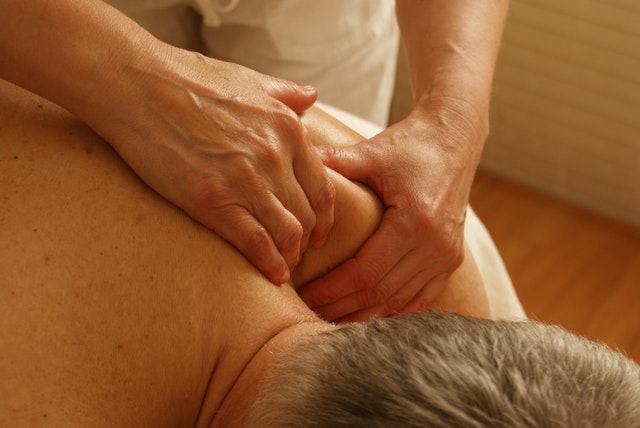Sports massage
Kitchen staff should get massages, why?
Finding Balance in the Kitchen: The Importance of Self-Care for Chefs
Running my own restaurant business in Goa, India, for four years was both exhilarating and exhausting. Our bustling beachside restaurant often demanded 18-hour workdays with minimal sleep, as we aimed to make our annual income during the five-month peak season. While work, money, and food were the primary focus, we seldom considered the toll on our bodies or the importance of proper breathing and recovery.
As a chef, I experienced severe stress, anger, chest pains, fatigue, and exhaustion. A French friend of mine, who was always calm and balanced, regularly received massages every three weeks. When I asked him his secret to managing stress, he advised: “Walk in the morning, exercise, breathe properly, and get a massage every two weeks. It is especially important for those who work indoors for long hours or shifts.” He explained that massages help eliminate toxins from the body, a fact supported by scientific evidence.
After four years in the kitchen, I decided to step back from cooking and instead focus on managing the restaurant and serving food. I also began practicing massage therapy to help others. For many, leaving the kitchen isn’t an option due to their passion for cooking or financial necessities.
Workers in all fields, not just chefs, can benefit from regular massages. Whether you’re a hairdresser, massage therapist, or someone who works at a desk, a monthly massage can help manage stress. However, working in a kitchen presents unique challenges: high stress, confined spaces, noise, and a fast-paced environment.
Chefs at every level face health issues due to the nature of their work, from back pain and arthritis to stress-related illnesses. A professional kitchen is an incredibly stressful environment, and it’s not surprising that many chefs suffer from illnesses due to the long hours and high pressure.
Late Nights and Split Shifts
The lifestyle of a chef also contributes to significant health concerns, such as diabetes and heart disease from poor diet and lack of exercise. Chefs often have irregular eating patterns and resort to convenience foods, which are usually unhealthy and full of preservatives and fats. After a long day of cooking, the last thing a chef wants is to cook a healthy meal for themselves.
Moreover, chefs rarely find time for exercise. With only one day off a week, fitting in a jog between shifts is challenging. This often leaves mornings as the only time for exercise, but after working late into the night, getting up early means sacrificing much-needed sleep.
These work patterns can also have psychological effects, leading to isolation from friends and family due to antisocial hours. Therefore, having evenings off is crucial for well-being, as it helps maintain a healthier diet and exercise routine due to increased motivation.
Stress-related Health Issues
The constant stream of tight deadlines in a kitchen can lead to high blood pressure and other stress-related health problems. Chefs must stay organized and safe in a confined, hazardous environment, which is inherently stressful. The ways chefs unwind between shifts can also contribute to health issues.
Physical Injury
Standing for long hours and lifting heavy pots and pans can cause significant physical strain. Kitchen surfaces are rarely the right height for everyone, leading to back pain from leaning over workstations. Back experts suggest using a small stool to raise one foot, reducing nerve compression and alleviating pain. Moving heavy, hot pans close to the body can also help prevent back, neck, and shoulder strain.
Working in a kitchen is incredibly demanding, involving long hours on your feet, constant motion, a stressful environment, limited fresh air, and exposure to fumes and oils. Many kitchen workers endure this for financial reasons rather than passion.
To support kitchen and hospitality workers, I am offering a 20% discount on recovery massages and diet consultations. Book a massage now and start your journey to better health and well-being.



